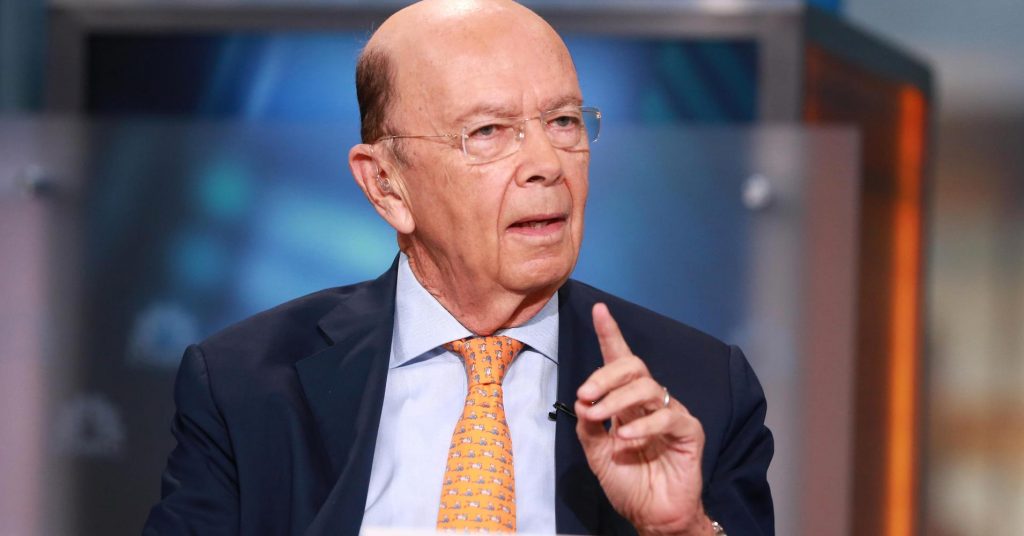The battle lines are drawn in the trade war with China, and President Donald Trump can expect little support from the high tech and financial sectors or the economics profession. They argue the U.S. is doing quite well.
[Peter Morici | May 7, 2018 | MarketWatch]
Donald Trump has lifted growth to 2.9% a year but that compares poorly with China, whose superior performance can no longer be written off as that of a developing country playing catch up.
Beneath the modern theory of free trade lurks an assumption that economists are disinclined to discuss — the textbook theorem assumes balanced trade accomplished through a reciprocal reduction of trade barriers and market-determined exchange rates. We haven’t had an overabundance of those with our three biggest competitors — Japan, Germany and most of all China.
Consequently, America’s trade deficit will exceed $675 billion in 2018, and about 60% is with China. This situation creates winners and some big losers—mostly, Middle Americans whose jobs are displaced by imports but are not re-employed to make exports.
West Coast high-tech executives who get rich shipping manufacturing jobs and technology to China, New York bankers who cut the deals to finance the process, and academic economists tell us lower-priced Chinese goods help us live better by consuming more. They soft peddle the massive foreign borrowing necessary to finance the deficit that will soon leave the country vulnerable to a financial meltdown similar to those that crippled Greece, Spain and many others.
China’s mercantilist tactics are well documented: high tariffs, subsidies and various restrictions on foreign investment including mandatory joint-venture requirements. Those encourage U.S. companies to move factories and transfer technology. Beijing has targeted a succession of U.S. industries — for example, aluminum, autos and solar panels.
Trump plans to levy tariffs on $50 to $150 billion on goods from China. However, China sends the United States more than $500 billion in goods but the United States ships less $150 billion the other way. In a tit-for-tat faceoff, China could virtually wipe out all of U.S. exports while maintaining access for most of its shipments to the United States.
The Chinese have indicated no appetite for real negotiations on U.S. grievances. They are strenuously resisting negotiations to draft a plan to reduce the bilateral imbalance by $200 billion as requested by the Trump administration or to curtail a planned $300 billion in new subsidies to upgrade advanced technology industries.
President Xi Jinping has floated speeding reforms in the insurance and financial sectors and lifting joint- venture requirements in the auto sector. Regarding the former, we have heard those promises before only to be disappointed by Beijing’s backsliding after the crisis has passed.
U.S. auto companies would face considerable difficulties extricating themselves from established joint ventures. And the Chinese have likely already obtained what they need — they appear to be leading in the race to develop affordable electric vehicles and critical battery technologies.
Now China is setting its sights on displacing American leadership in the industries that will drive global growth and define advantages in national security over the next quarter century — artificial intelligence, advanced microprocessors and the internet.
State guidance, support, and preferences for domestic firms are deeply imbedded in the culture of China’s ruling oligarchy and concessions made in one area — for example, compulsory joint ventures — can easily be replaced by providing subsidies and exerting other levers on foreign firms — for example, extracting concessions through antitrust reviews during the endless rounds of merger and acquisitions that characterize the high-tech industry.
As China has no interest in reforming its mercantilist policies, the United States should require licenses for Americans to import Chinese goods. Exporters could be issued resalable import permits equal to the value of their sales in the Middle Kingdom. Those wishing to purchase items from China would then bid for those.
Any Chinese retaliation against U.S. exports would only reduce licenses for Americans to purchase Chinese products. Unlike a tariff, the revenue generated, by going to U.S. exporters, would serve to promote sales of U.S. products abroad.
This could be phased in by at first issuing import licenses of somewhat greater value than exports and gradually reducing those to parity over three to five years. And, it would challenge the Europeans, NAFTA allies and others to do the same.













